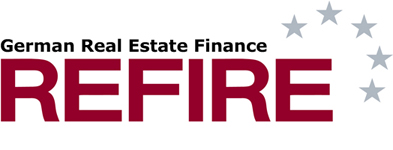
IntReal International Real Estate Kapitalverwaltungsgesellschaft mbH
Michael Schneider - IntReal International Real Estate
Michael Schneider - IntReal International Real Estate
The German fund industry recorded net inflows of €79.1b in the first six months of 2017, marking the second highest result for a half-year ever recorded, according to the BVI.
Open-ended Spezialfonds were the main recipient, accounting for €49.2b of inflows. Open-ended retail funds accounted for an additional €36.4b. Closed-end funds brought in €2b. Overall, institutional investors withdrew €8.5b from discretionary mandates. Private investors also invested a net figure of €2.8 b in open-ended mutual property funds in the first six months. As such, net inflows reached 65% of the prior-year total in the first half-year alone. The figure is all the more remarkable given that many open-ended mutual property funds are not accepting new capital at present. The inflows are attributed to the funds that are still taking money and to those that were launched in the last twelve months.
‘Just like institutional investors, private investors are increasingly keen to invest in property at the moment,’ said Michael Schneider, managing director of fund manager IntReal International Real Estate. ‘Many retail investors cannot invest directly in property as the investment amounts and the risks often associated with just one property are too high, and the commitment periods are very long. Along with property stocks, open-ended mutual property funds are the only risk-diversified investment alternative.’
There has also been a shift in terms of the asset classes investors are targeting, according to Schneider: ‘Whereas all open-ended funds used to invest almost exclusively in office and retail properties, residential is now available as a usage type on a large scale in the vehicle of open-ended mutual funds for the first time.’
Balanced funds dominate new business
In the open-ended retail fund segment, balanced funds led the way, attracting inflows of €18.8b during the first six months, according to the BVI, marking the highest inflows since 2015, when balanced funds collected €24.9b in the first six months. This year's inflows are dominated by products that invest broadly equally in equities and bonds, with €9.8b accounting for 52% of new capital. Balanced funds that invest at least two thirds of their capital in equities rank second, at 29%, and products focusing on bonds rank third, at 19%.
Since the beginning of 2013, assets under management in balanced funds have more than doubled, from €123b to their current level of €251b. During the same period, the share of products that invest broadly equally in equities and bonds decreased from 53% to 47%. Equity-focused products increased their share from 22% to 27%. The share of bond-focused balanced funds remains almost unchanged at 26%.
At €368b, equity funds continue to be the largest retail fund segment. Balanced funds are followed by bond funds with assets totalling €203b, property funds with €88b and capital protected funds with €22 b.
Investors flock to Spezialfonds
Investors have flocked to open-ended Spezialfonds in the past six years. As a result, the assets under management in open-ended Spezialfonds have almost doubled since then to €1,546b, up from €814b in 2011, according to the BVI.
Insurance companies are the largest investors in such funds, accounting for €600 of AUM. They invested €16,4b in Spezialfonds in the first six months of 2017. Pension funds have invested a further €379b to date, thereby accounting for 25% of capital invested in Spezialfonds, up from 15% seven years ago.
At the end of June, German funds had €2.9 trn of AUM, according to the BVI.
